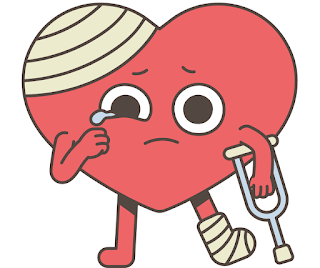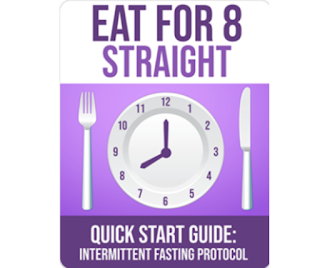Turning Pain into Power: Stories of Sweet Revenge Against Those Who Hurt Us
It may be an
extremely challenging emotional experience when someone hurts us. It might be
difficult to continue trying to find a means to heal after a romantic partner
cheats on us, a friend betrays our trust, or a family member emotionally wounds
us.
For some, the idea of revenge can be tempting. If someone has wronged us, we may want to make them feel the same way we do by causing them pain and suffering. “Hurt people hurt people,” as they say, but retaliation seldom results in actual healing and frequently only feeds the cycle of pain and suffering.
But what if we could transform our pain into power? What if we could use our
experiences to help us develop and become stronger rather than allowing them to
break us down?
These are a few accounts of people who have done just that, turning their suffering into strength and finding delicious retribution for their ordeals.
The Betrayed Wife
Samantha had been married to her husband for ten
years when she discovered he had been cheating on her for over a year. Despite her heartbreak and devastation, she chose to take charge of the situation instead of snapping at him. She hired a divorce lawyer and ensured that she
received a fair settlement in the divorce, including custody of their children and
a portion of their shared assets.
But Samantha didn’t stop there. She started a successful business helping women
undergoing a divorce, offering legal advice, emotional support, and practical
tips for moving on. Since then, her company has helped hundreds of women achieve personal empowerment and take control of their lives.
The Abused Child
When Michael was a child, he suffered physical
and emotional abuse at the hands of his father. He lived in fear and felt
powerless to escape the situation. But as he grew older, he realized he didn’t
have to let his past define him.
Michael turned into a child abuse advocate, using his personal experiences to help others in similar circumstances. He collaborated with local groups to
raise awareness about child abuse and advocated for stricter child protection
laws. He has gained notoriety as a campaigner and helped many kids find their own power and recovery.
The Rejected Friend
Sarah was distraught when her best friend suddenly stopped talking to her and
began spreading rumors about her. She had no clue why her friend had turned on
her, and it seemed like everyone in their social circle had taken her friend’s
side.
Rather than dwell in self-pity, Sarah focuses on her own personal development.
She took up new hobbies, began working at a local charity, and made new friends
who shared her views and passions. Eventually, her former friend’s behavior
became irrelevant, and Sarah realized she had grown tougher and more resilient
because of the experience.
The Discriminated Worker
Juan was sure he was the best candidate for a
job at a large construction company when he applied. But after the interview, he was told in writing that he was not accepted. He
assumed it was due to his ethnicity, as the corporation was known for not
employing minorities.
Rather than giving up, Juan decided to take action. He contacted a civil
rights organization and worked with them to file a discrimination lawsuit
against the company. After a lengthy legal battle, Juan and the civil rights
organization won the case, and the company was forced to change its hiring
practices. Today, Juan is a successful executive at the same company, and he
has utilized his expertise to help other minorities struggling to break into
the corporate world.
The individuals involved in each story used their pain and turned it into power. They refused to remain victims and instead used their experiences
to grow and become stronger. Rather than pursuing retribution against those who had wronged them, they managed to move forward and improve both their own and other people's lives.
It's important to note that turning pain into power is not always an easy or
quick process. It often involves a lot of introspection, self-care, and hard
work. It may involve seeking therapy or support from loved ones. But by taking
the time to heal and grow, we can find a way to transform our pain into
something positive and empowering.
It's also essential to remember that converting our suffering into strength
does not require us to forgive or forget those who wronged us. Forgiveness is a
personal choice, and it's alright if we're not ready yet to forgive. What matters is our decision about how to move forward and create a meaningful life for ourselves.
Here are some suggestions for transforming any hurt or pain you are experiencing into power:
1. Take care of yourself: This can entail going to therapy, taking care of yourself, and surrounding yourself with family and friends who are encouraging.
2. Focus on personal growth: Take up new hobbies, learn a new
skill, or volunteer for a cause that you’re passionate about. Use your pain as
motivation to become the best version of yourself.
3. Use your experience to help others: Find a way to use your grief to make a difference in the world by volunteering for a charity, mentoring someone going through a similar circumstance, or supporting a cause that is meaningful to you.
4. Speak up: If you have been mistreated, it is completely acceptable to speak out against injustice, hold people accountable for their actions, and seek justice. Never be afraid to do so.
5. Never forget that you are not alone in your struggles; others have faced and overcome similar challenges. Seek support groups or online communities to connect with
others who can offer guidance and encouragement.
Turning pain into power is a journey. However, it can ultimately lead to a
meaningful life. Instead of becoming a victim, wallowing in self-pity, and
seeking vengeance, using our experiences to learn through personal growth,
empowerment, and positive change can also transform the world around us.




Comments
Post a Comment